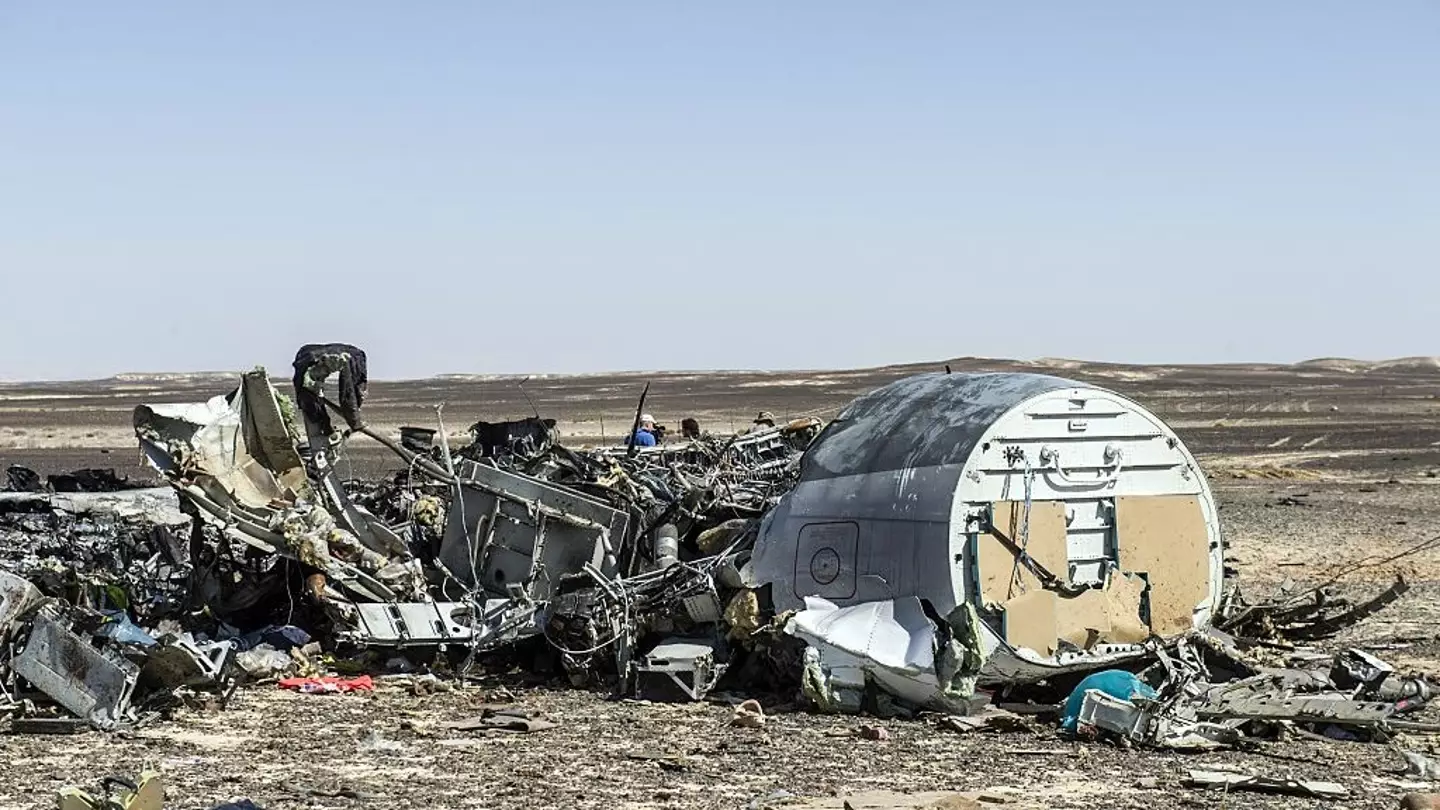
An aviation expert claims to have 'solved' the mystery of how a Russian passenger jet crashed while flying over Egypt's Sinai Peninsula, a decade on from the tragedy.
On 31 October 2015, Metrojet Flight 9268 departed from Egypt's Sharm El Sheikh International Airport on a commercial flight to the Russian city of St Petersburg.
Onboard the flight was 224 people - 217 passengers and seven crew members - which included 212 Russians, four Ukrainians, and one Belarusian national, returning from trips to the popular holiday destination.
The flight departed from Sharm El Sheikh in the early hours of the morning but would never make it to Russia's second city, as the aircraft exploded within 23 minutes of being airborne.
Advert
All 224 people onboard the flight would perish in the crash.
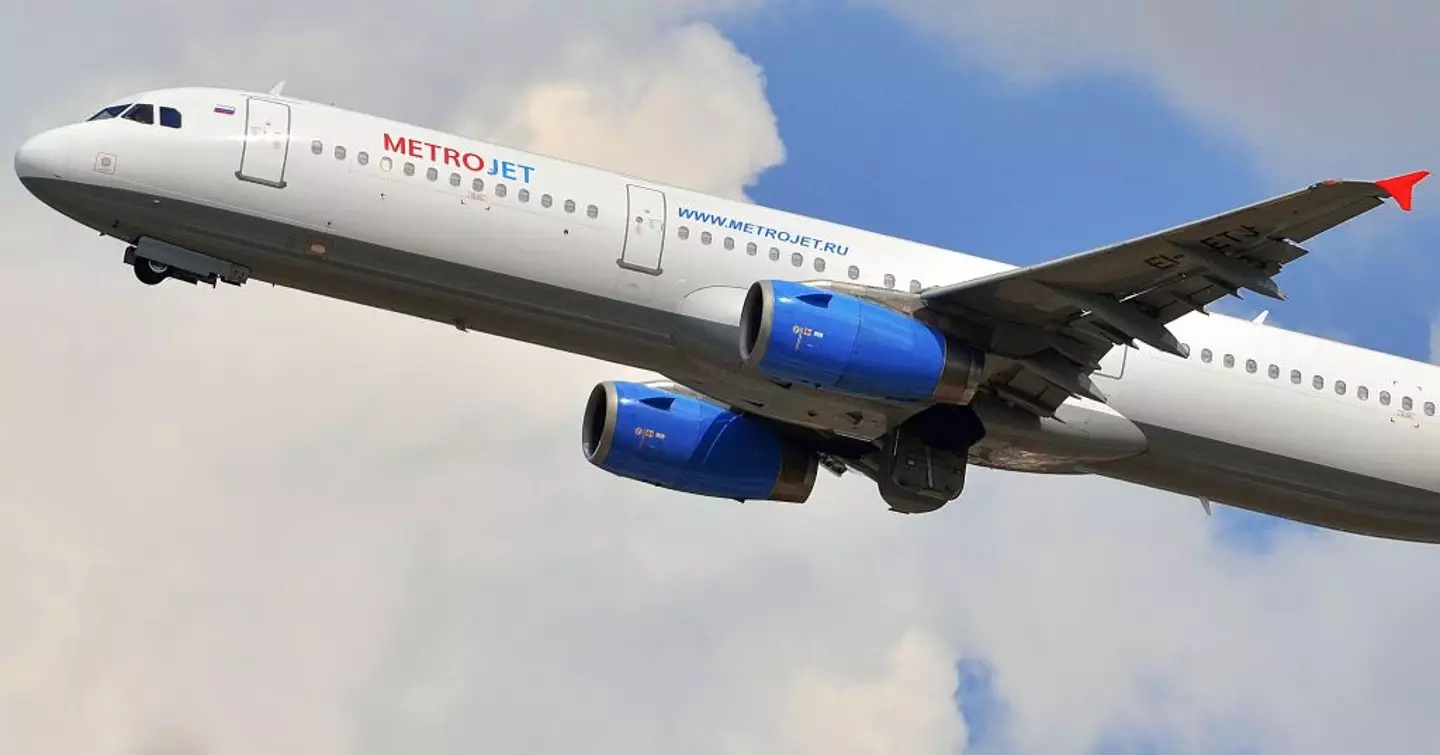
An official cause for the deadly crash was never reached, with aviation investigators from Egypt and Russia disagreeing over whether the crash was caused by mechanical failure of a terrorist incident.
A decade on from the deadly crash and an aviation expert has now revealed why they believe an onboard bomb was the most likely scenario which downed flight 9268.
Speaking about the crash and the aftermath in an interview with The Sun, aviation expert Julian Bray outlined why he believes the crash was a 'deliberate act'.
Bray pointed to evidence which collected from the plane's wreckage, which suggested the tail of the aircraft had broken up in mid-air before slamming into the ground, to support his theory.
"The whole tail section came off. There’s definitely an explosion inside, and I tend to think there was a device on board," he said.
"And it was terrorism. We have a fairly clued-up terrorist group taking responsibility for it."
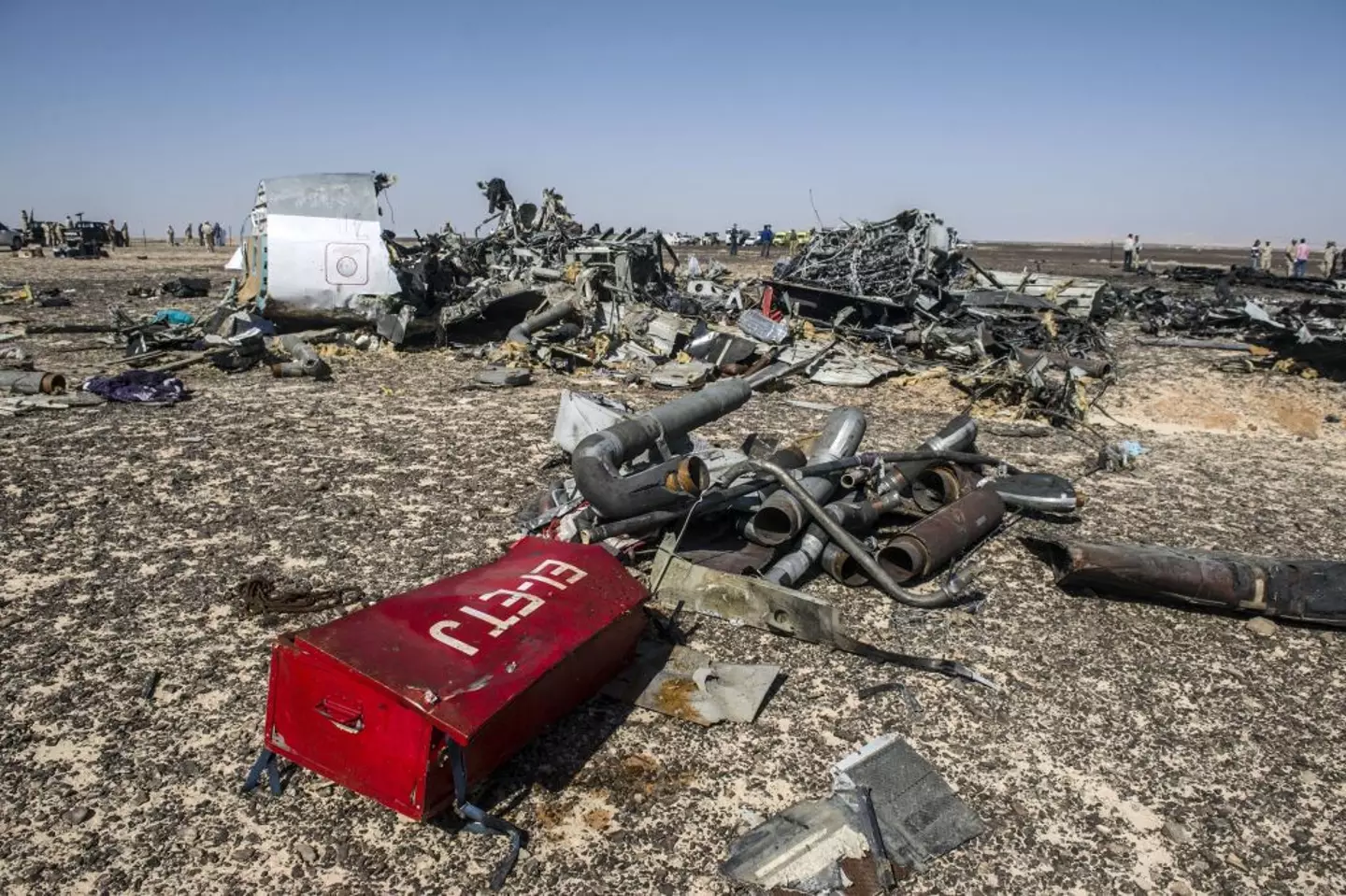
He went on to suggest that 'half a kilo of TNT' had been loaded onto the back of the flight as checked baggage by ground staff, which would've been enough to cause the jet to fall apart mid-air.
"I tend to think it is very definitely a late-loaded piece of baggage, or a package, or consignment," he added.
Bray isn't the only person to reach this conclusion, with Russia's security service chief concluding 'with confidence' that flight 9268 was the target of a terrorist attack (per The Independent). This conclusion was also supported by US and UK intelligence agencies, with the latter placing a temporary pause on flights to Sharm El Sheikh, a popular tourist destination for Brits.
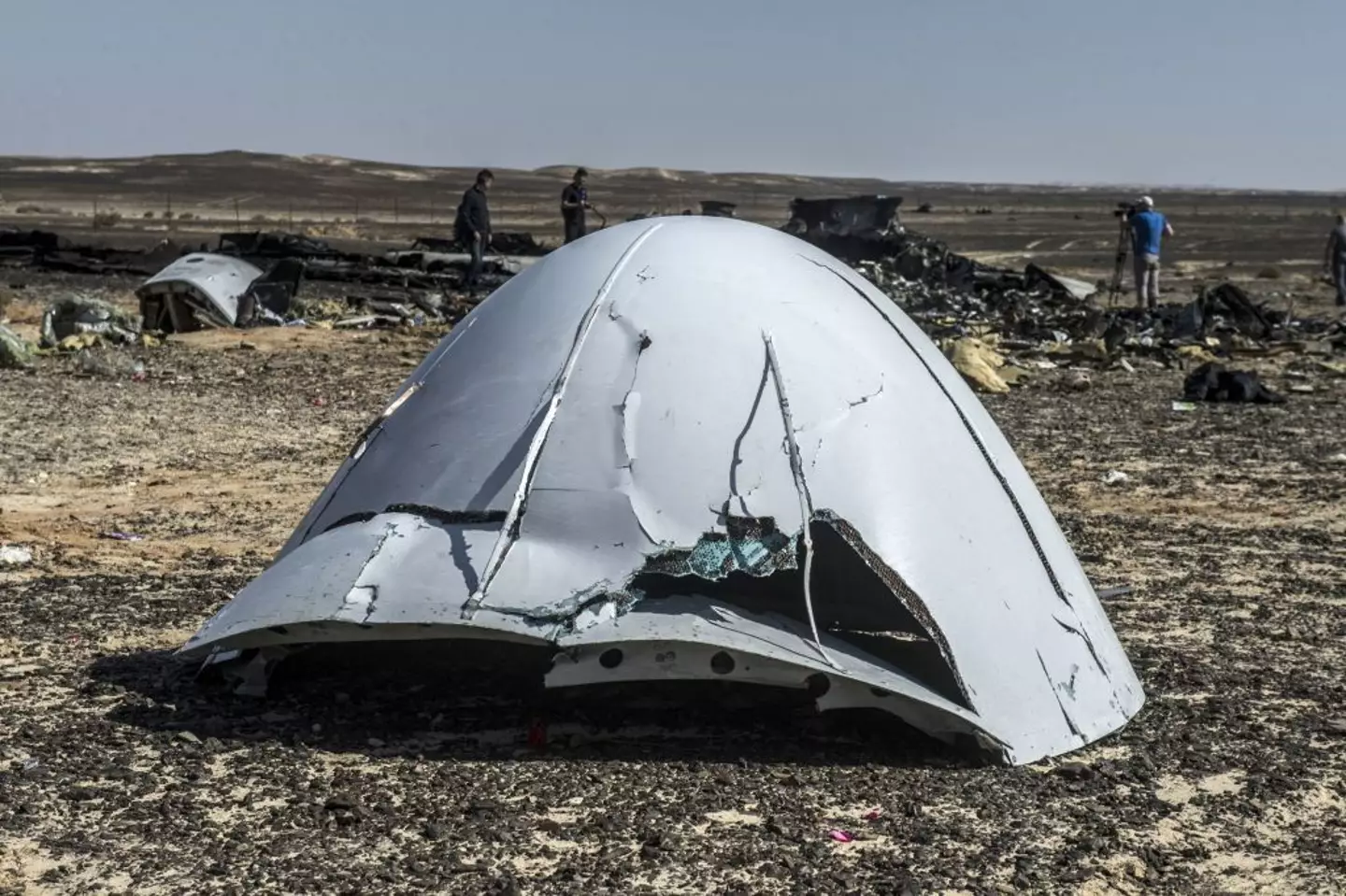
The Sinai branch of terrorist group Islamic State would later claim responsibility for the attack, publishing an image of a bomb hidden inside a fizzy drink can. According to a 2016 update in the case from Reuters, four men had been arrested on suspicion of planting an explosive substance on the flight. However, none were prosecuted.
However, officials in Egypt ruled in 2020 that flight 9268's crash was not an act of terrorism. This clashed with a statement from Egypt's President Abdel Fattah el-Sisi, who acknowledged in 2016 that terrorism was the likely cause for the crash.
Other theories put forward included a missile strike and technical failure.
However, Bray stands firm in the belief that flight 9268 was downed by the terror group, suggesting that targeting enemies they were fighting in Syria at the time and damage to the Egyptian tourism industry as likely motives.
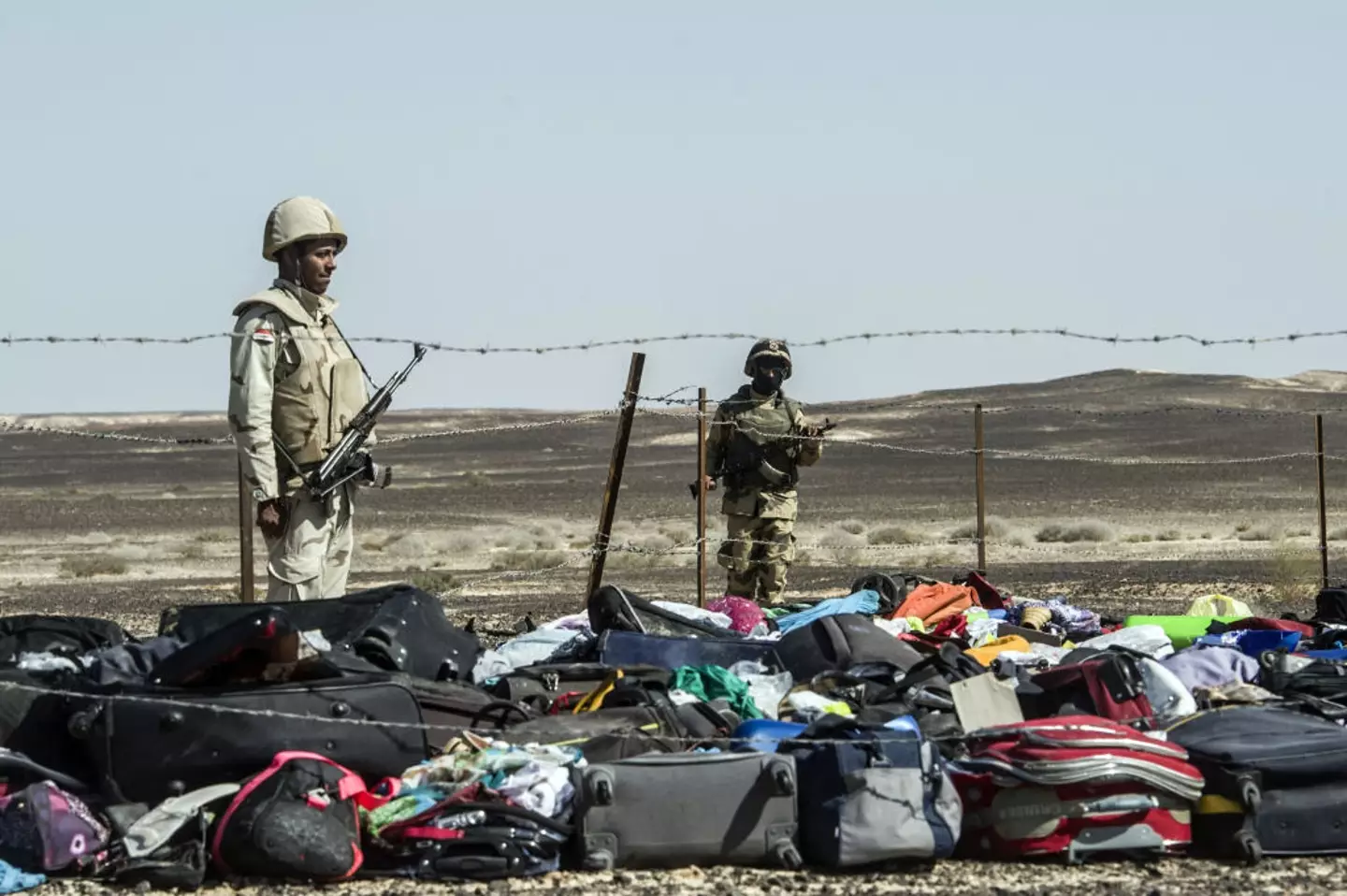
"The motive is quite simply to damage the Egyptian economy," he added.
"None of their people get hurt, but they inflict maximum damage on their enemy, their perceived enemy... This is both economic terrorism and political terrorism."
Topics: Russia, Travel, Terrorism, World News